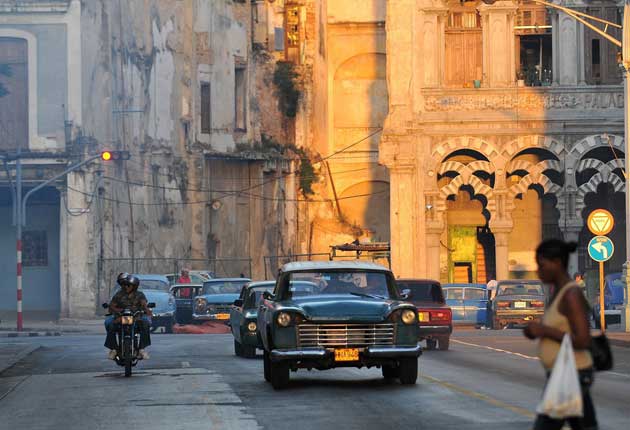Simon Calder: The importance of a visit from Ernest

The sad thing about dead celebrities is that they are no longer with us. Whatever you may think about, say, Michael Jackson, the pop singer enriched many lives. The good thing about dead celebrities is that they are no longer with us, which is an advantage from the perspective of some of those who wish to promote tourism. The deceased cannot complain about their name being taken in vain and applied liberally to everything from a cocktail to a yacht marina.
In Cuba, you sense that anything not named after the national hero, José Martí , is probably named for Ernest Hemingway, who took his own life 50 years ago today before he could become an old man of the sea. The hard-drinking writer might have taken pride in way that 21st-century tourists begin an evening in the manner he prescribed – "My mojito in La Bodeguita", a Havana mainstay – but be less enamoured of the ugly, modern Hemingway Marina, eight miles west of the capital. This is the venue for the Ernest Hemingway Marlin Fishing Tournament, which "Papa" did endorse before his death in 1961.
The first post-revolutionary winner was none other than Fidel Castro. By the end of the Sixties, El Presidente must have thought it was Christmas (had he not abolished the festival). He had two dead heroes to mythologise: Che Guevara, to appease the masses, and Ernest Hemingway, to appeal to the tourists.
THE CHARM OF A
LITERARY JOURNEY
For the tourist, a literary narrative can enhance a journey – especially if it gives you the chance to indulge in the manner of a writer who (as we shall see) enjoyed his research more than his writing. In Havana, you begin in El Floridita. Not with the "Hemingway Special" (an effeminate concoction of rum, lime, grapefruit juice and maraschino) but a couple of "double frozen daiquiris, the great ones that Constante made, that had no taste of alcohol and felt, as you drank them, the way downhill glacier skiing feels running through powder snow and, after the sixth and eighth, felt like downhill glacier skiing feels when you are running unroped".
Better sleep it off at the Ambos Mundos, the Old Havana hotel that seems to have spent most of its post-revolutionary life under renovation, but is now once again exploiting the memory of the man whose drinking record looks as though he was doing his very best to forget.
The next step on the Hemingway Trail takes you seven miles south west, to his former home in the suburb of San Francisco de Paula. Finca La Vigía (so named for the vigilantes who kept an eye on things from this hilltop) is now the Museo Ernest Hemingway – a moving tribute to the man who championed Cuba, and contains some of his original manuscript. Touchingly, on my first visit, it was closed because of rain; butpersevere to get a sense of the man who sorrowfully abandoned Cuba in 1960, the year before he shot himself in a cabin in Idaho.
Final stop: the coastal village of Cojimar, the setting for his Nobel Prize-winning novel The Old Man and the Sea. Gregorio Fuentes, the gnarled old sea captain, kept going for decades, receiving tourists and offering increasingly wild yarns in return for hard currency. He died in 2002 – but the legend lives on.
mojito or
DAIQUIRI?
Cuba's exploitation of literature for the purposes of its tourist industry is matched by the Western media's ceaseless harvesting of the island's fragile heritage.
The great broadcaster Andy Kershaw started it all, in 1994, with a Radio 4 documentary called Castro's last Christmas?. With interviews with supporters of the "Socialism or Death" principle, and Cuban exiles in Havana, it asked how long the Castro regime could survive following the collapse of communism elsewhere in the world.
Shrewd timing, I thought, given that the nation looked about as pallid as an East German postcard. But Kershaw's question mark turned out to be well judged. I wish I had used something equally cautious in 2003, for a story I wrote, imploring "Cuba – why you should go now".
Surely, I argued, the US economic embargo would soon end. It hasn't happened yet – but even the Castro brothers can't last forever. With the predictable flood of American visitors to the Caribbean's most beautiful island socialismo o muerte would soon be replaced by Hemingway's dilemma: "mojito or daiquiri?"
Subscribe to Independent Premium to bookmark this article
Want to bookmark your favourite articles and stories to read or reference later? Start your Independent Premium subscription today.

Join our commenting forum
Join thought-provoking conversations, follow other Independent readers and see their replies